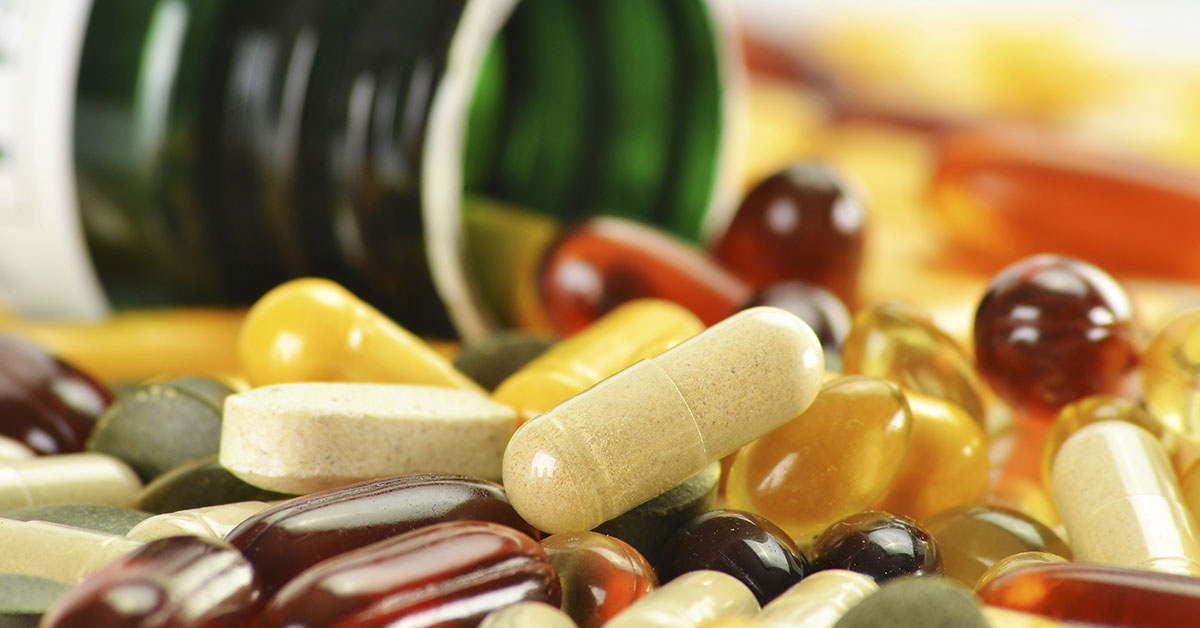The market for brain-boosting supplements is booming, with countless products claiming to enhance cognitive function and improve brain health. But amidst the abundance of options, it’s important to ask: do these supplements actually work? In this article, we will explore the world of nootropic supplements, debunk misconceptions surrounding them, and discuss seven supplements that have shown potential in enhancing brain function. However, it’s crucial to remember that while supplements can provide support, they are not a magical solution. The key to optimal brain health lies in maintaining a healthy lifestyle that includes proper nutrition, regular exercise, sufficient sleep, hydration, healthy social interactions, and mental health support.
What are Nootropic Supplements?

Nootropic supplements, often referred to as “smart drugs,” are natural or synthetic substances that claim to enhance cognitive function in healthy individuals. These supplements are designed to improve various aspects of brain function, such as memory, focus, creativity, motivation, and overall cognitive performance. However, it’s essential to note that the efficacy of these supplements is not yet fully supported by scientific evidence.
Read More: 5 of The Best Types of Foods and 4 Supplements for IBS
Misconceptions Surrounding Nootropic Supplements
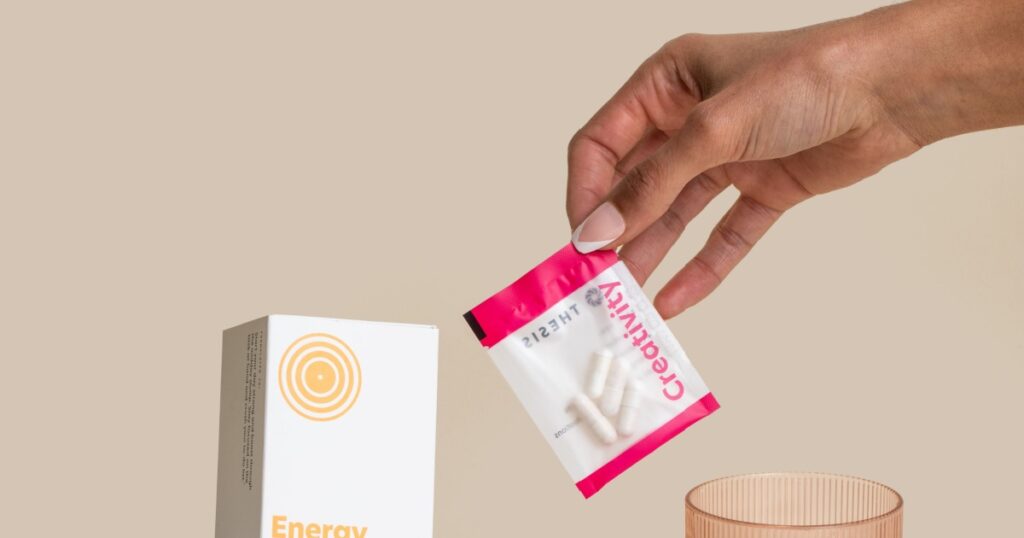
There are several misconceptions and misinformation surrounding nootropic supplements. One common misconception is that these supplements can instantly transform anyone into a genius or enhance intelligence beyond a person’s natural abilities. This is simply not true. Nootropic supplements cannot replace hard work, dedication, or natural cognitive abilities. Another misconception is that brain-boosting supplements can improve specific aspects of brain function, for example memory or ability to concentrate. This isn’t entirely true. There are vitamins, minerals, and herbal supplements that support the health of your brain, yes, and certain substances such as caffeine do enhance alertness. This alertness, or feeling of being awake, can help you to then concentrate and get things done, as you feel you have the energy to do so. Any supplement, however, that specifically states it will help with one aspect of your brain function, however, should be regarded with a healthy degree of skepticism. As of right now, there is no scientific evidence to support these claims. (1)
7 Supplements that Improve Brain Function
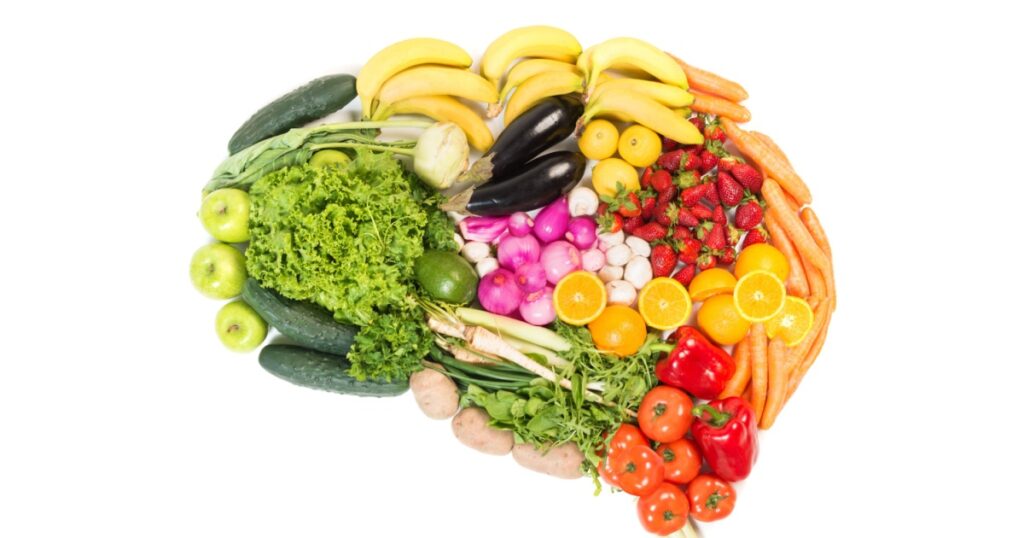
With all of that being said, there are definitely vitamins, minerals, herbals, and supplements that support brain health. A healthy brain (and a healthy body) is one that functions optimally. When you are healthy, you feel good, energized, and able to take on both mental and physical challenges. These are some of the supplements that, along with a healthy diet and lifestyle, can help you feel this way. Again, these supplements are just that: supplementary. They won’t do much for you if your diet and lifestyle habits are not sound.
1. Fish Oils
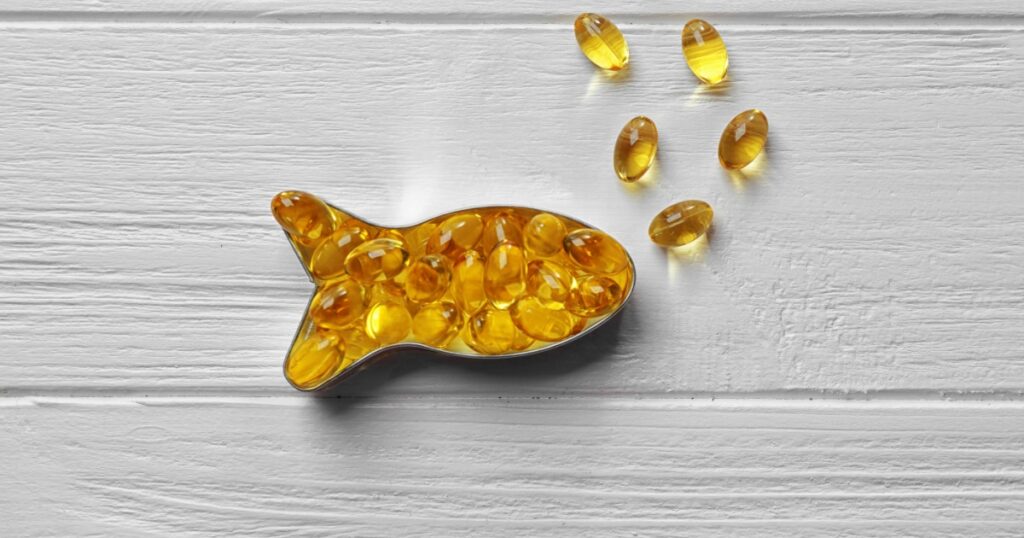
Fish oil supplements are rich in omega-3 fatty acids, specifically docosahexaenoic acid (DHA) and eicosapentaenoic acid (EPA). Research suggests that DHA plays a vital role in maintaining brain structure and function. Taking fish oil supplements has been linked to improved thinking skills, memory, and reaction times in individuals with low DHA intakes. (2)
Read More: Massive Study Shows Vitamin D Supplements May Help Fend Off Dementia
2. Resveratrol
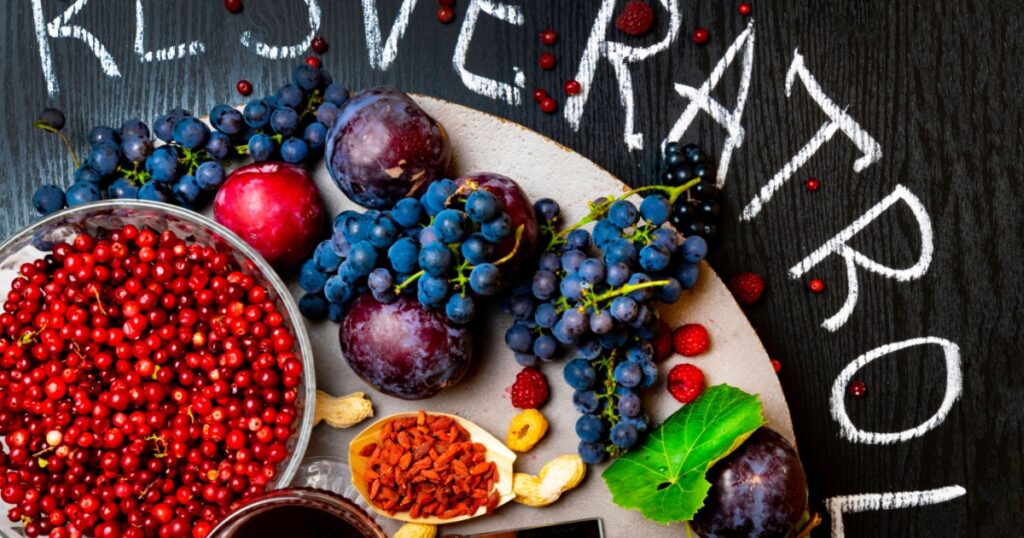
Resveratrol is an antioxidant found naturally in the skin of purple and red fruits, like grapes, raspberries, and blueberries. Studies suggest that resveratrol may help prevent the deterioration of the hippocampus, a region of the brain associated with memory. Animal studies have also shown that resveratrol can improve memory and brain function. However, more research is needed to fully understand its effects in humans. (3)
3. Creatine
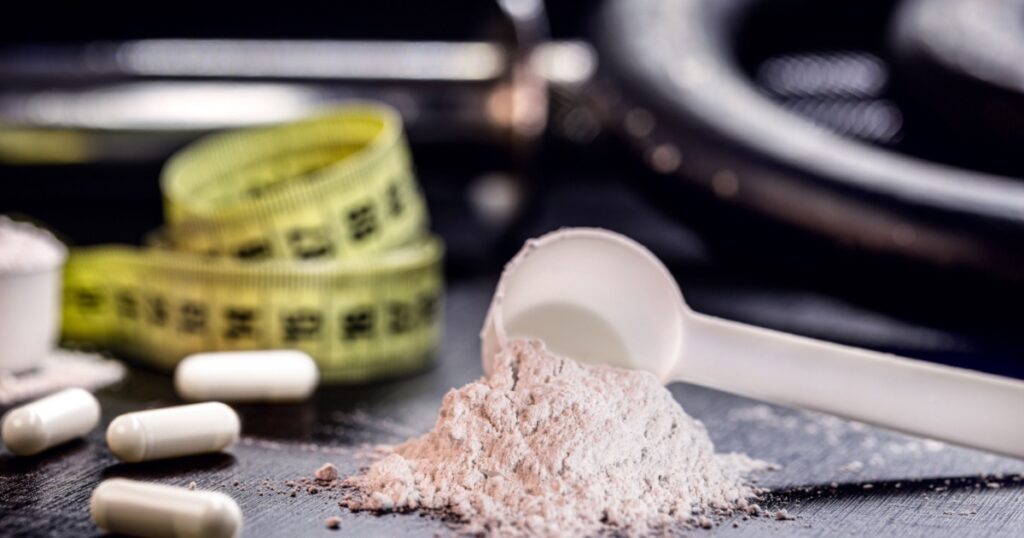
Creatine is a natural substance primarily found in meat, fish, and eggs. It plays a vital role in energy metabolism. While commonly used as a sports supplement, research suggests that creatine can also improve memory and thinking skills in individuals who don’t consume meat. However, its effects on otherwise healthy individuals are not well-established. (4)
4. Caffeine

Caffeine, a natural stimulant found in tea, coffee, and dark chocolate, is known for its ability to improve alertness and combat fatigue. Studies have shown that caffeine can enhance memory, reaction times, and overall brain function. However, excessive caffeine consumption can lead to side effects such as anxiety and sleep disturbances. (5)
Read More: Autoimmune disease may be prevented by vitamin supplements, study finds
5. Phosphatidylserine
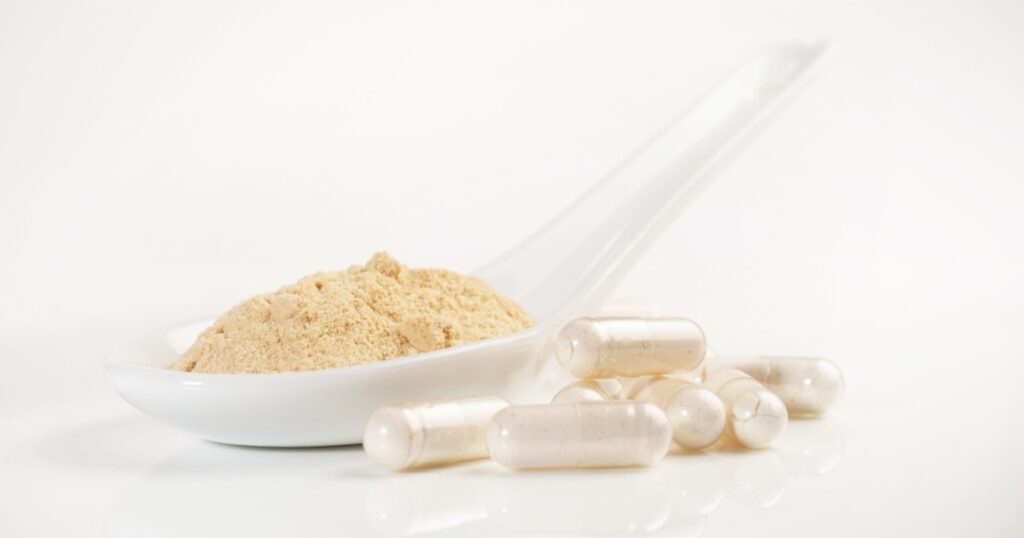
Phosphatidylserine is a phospholipid compound naturally found in the brain. Supplementing with phosphatidylserine has been suggested to preserve brain health and improve thinking skills. Studies have demonstrated that it could help reduce age-related decline in brain function and enhance memory. However, more extensive studies are needed to further understand its effects. (6)
6. Acetyl-L-Carnitine
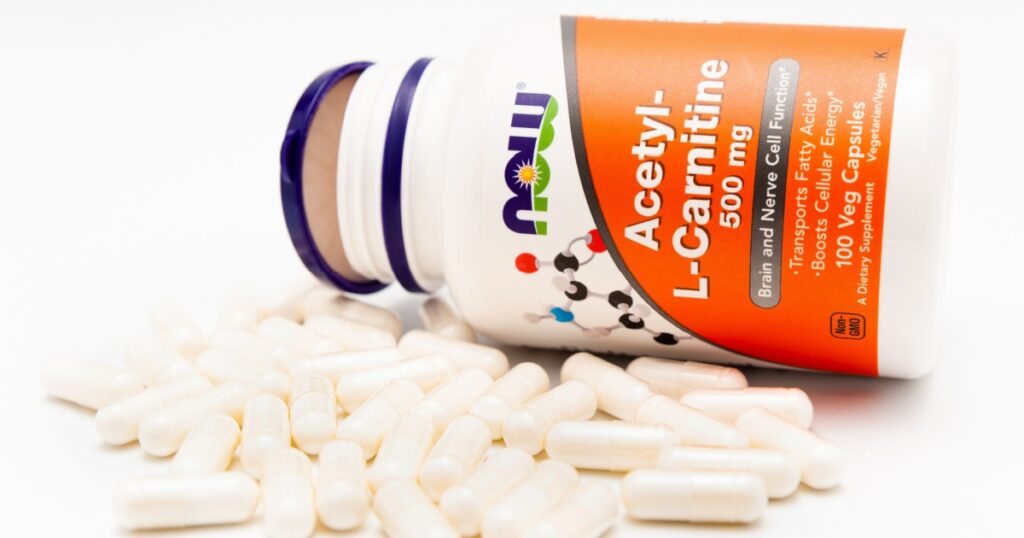
Acetyl-L-carnitine is an amino acid that naturally occurs in the body and plays a role in energy production. Studies have shown that acetyl-L-carnitine supplements may help improve alertness, memory, and slow down age-related memory loss. Its efficacy in healthy individuals without existing brain function issues is not yet established. (7)
7. Ginkgo Biloba

Ginkgo biloba, derived from the Ginkgo biloba tree, is a popular herbal supplement believed to boost brain power. It is thought to improve brain functions such as focus and memory by increasing blood flow to the brain. While some studies have shown benefits in reducing age-related decline in brain function and improving memory, results have been inconsistent. (8) While it may benefit cognitive function in older adults, it’s unclear if younger people can also benefit. Ginkgo has not shown benefit for preventing Alzheimer’s or general dementia (9).
Using Supplements for Brain Health

While these supplements may show promise, it’s essential to emphasize the importance of an overall healthy lifestyle in supporting optimal brain function. Nutrition, exercise, sleep, hydration, healthy social interactions, and mental health support play a pivotal role in maintaining brain health. Supplements should be seen as a complementary tool, rather than a standalone solution. (10)
Think of it this way

If you are chronically underslept, no amount of caffeine will help you overcome what your body really needs: Sleep. Supplements also cannot make up for a lack of fruits and vegetables in your diet. Certain sub-groups, such as vegans or vegetarians, may require supplementation to ensure that they have a sufficient intake of certain nutrients found primarily in animal products. Other health conditions may also require certain supplemental needs. Typically, however, the best thing you can do for the health of your brain is the same as you can do for every other health qualm: Eat a balanced diet, exercise regularly, get proper sleep, drink enough water, ensure social stimulation, and take care of your mental health. That, truthfully, is the only real way to boost your brain health.
The Bottom Line

The market for brain-boosting supplements is vast, with numerous options claiming to improve cognitive function. While there is preliminary evidence suggesting the potential benefits of certain supplements, it’s important to approach these claims with skepticism. No supplement can replace the value of a healthy lifestyle in promoting brain health. Focus on maintaining a balanced diet, engaging in regular exercise, prioritizing quality sleep, staying hydrated, nurturing healthy relationships, and seeking mental health support to optimize your brain function naturally.
Read More: Longevity Doctor Takes 3 Supplements to Improve His Sleep
Sources
- “Dietary supplements that boost brain power lack strong evidence.” Examine. October 3, 2021.
- “Essential fatty acids and human brain.” Pubmed. Chia-Yu Chang, Der-Shin Ke and Jen-Yin Chen. December 2009.
- “Resveratrol prevents age-related memory and mood dysfunction with increased hippocampal neurogenesis and microvasculature, and reduced glial activation.” Pubmed. Maheedhar Kodali, Vipan K Parihar, Bharathi Hattiangady, Vikas Mishra, Bing Shuai and Ashok K Shetty. January 2015.
- “The influence of creatine supplementation on the cognitive functioning of vegetarians and omnivores.” Pubmed. David Benton and Rachel Donohoe. April 2011.
- “Effects of caffeine on mood and performance: a study of realistic consumption.” Pubmed. Carolyn F Brice and Andrew P Smith. November 2002.
- “The effects of IQPLUS Focus on cognitive function, mood and endocrine response before and following acute exercise.” Pubmed. Adam G Parker, Josh Gordon, Aaron Thornton, Allyn Byars, John Lubker, Michelle Bartlett, Mike Byrd, Jonathan Oliver, Sunday Simbo, Chris Rasmussen, Mike Greenwood and Richard B Kreider. October 2011.
- “Delaying the mitochondrial decay of aging with acetylcarnitine.” Pubmed. Bruce N Ames and Jiankang Liu. November 2004.
- “Specific memory effects of Ginkgo biloba extract EGb 761 in middle-aged healthy volunteers.” Pubmed. R Kaschel. November 2011.
- https://examine.com/supplements/ginkgo-biloba/research/#KJmxvQ7-neurology_KJmxvQ7-dementia-and-cognitive-decline
- “Healthy brain, healthy life: a review of diet and exercise interventions to promote brain health and reduce Alzheimer’s disease risk.” CDN Science Pub. Bradley J. Baranowski, Daniel M. Marko, Rachel K. Fenech, Alex J.T. Yang and Rebecca E.K. MacPherson.
Disclaimer: This information is not intended to be a substitute for professional medical advice, diagnosis or treatment and is for information only. Always seek the advice of your physician or another qualified health provider with any questions about your medical condition and/or current medication. Do not disregard professional medical advice or delay seeking advice or treatment because of something you have read here.
